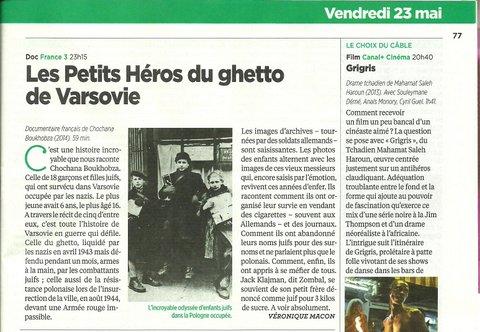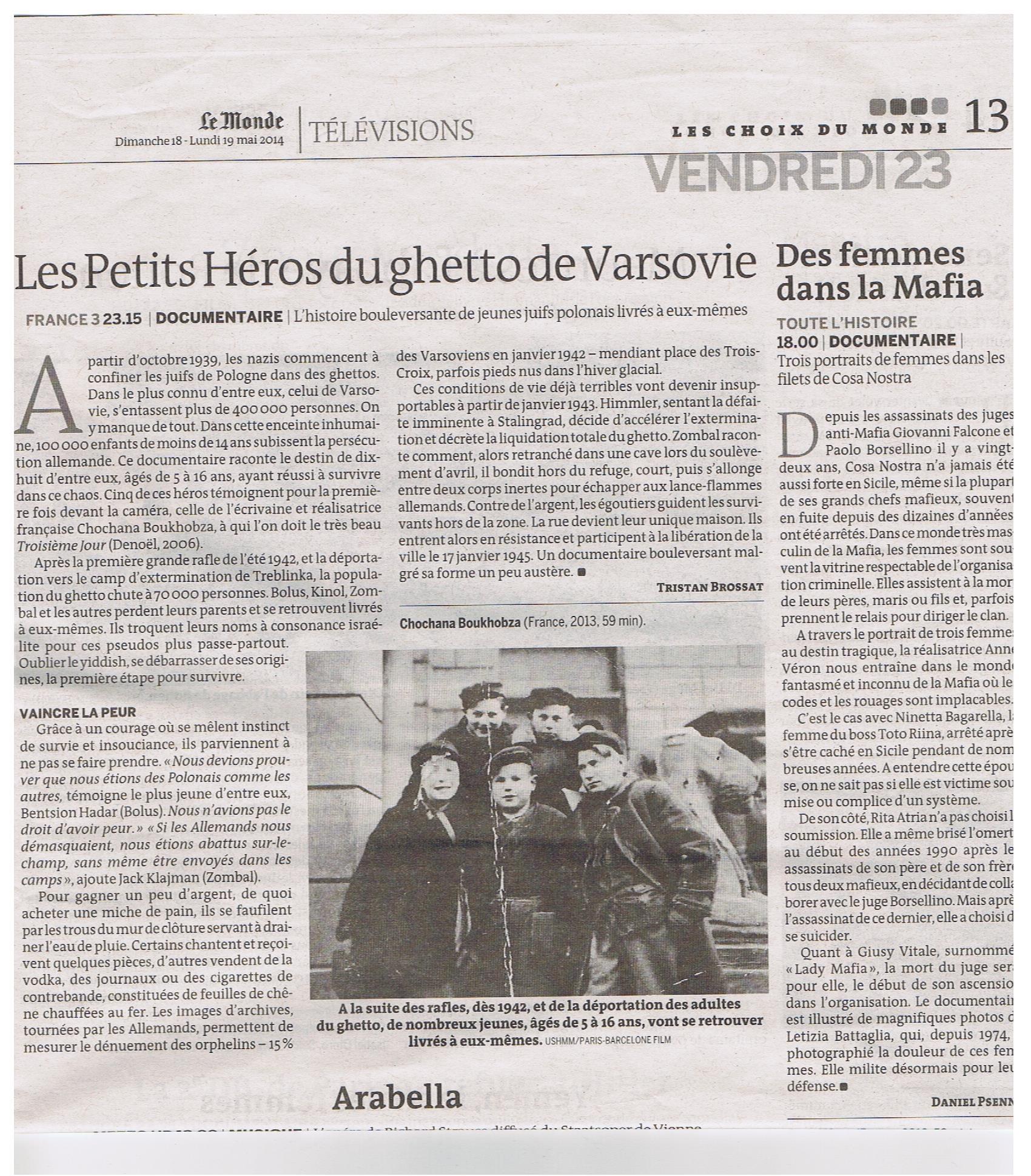The children of the Warsaw ghetto had to help their parents survive. To barter, to buy food, they slipped out of the ghetto, through the holes in the surrounding walls, by clinging to the back of the streetcar (which had not been diverted and whose rails crossed the ghetto).
A group of children escaped through the sewers when the ghetto fighters revolted against the SS.
Synopsis
They are between 6 and 15 years old. They slept in cemeteries, gardens and garbage rooms. They sold fake cigarettes and vodka to SS soldiers. These children are known. They were called “Little Cigarette Sellers” and their field of activity was “The Place of the Three Crosses”.
In the summer of 1944, these children decided to join the fighters in the city of Warsaw and displayed exceptional courage by becoming liaison officers and carrying weapons and bombs. Their temerity was rewarded with citations in the Polish resistance newspapers and the Cross of Merit.
When the city was razed by Hitler, these Jewish children were deported with the Poles to labor camps.
Telling the story of the struggle of this group of children is also telling the story of the suffering of the Jews of the ghetto, the hunger, the raids, the deportation, the permanent danger.
About the Director
Born in Sfax, Tunisia in 1959, speaking Arabic and Hebrew as a child, Chochana Boukhobza immigrated to France in 1964 with her family as most of the Tunisian Jewish community was uprooted. She moved to Israel as a teen to study mathematics and physics in Jerusalem, a period that has greatly influenced her writing. Upon her return to France she worked in radio, television and press as a journalist, and she has written several screenplays and award-winning documentaries about the lives of Jewish children, women and families as experienced during WWII. Her many novels are critically acclaimed, and although none of her books are announced as autobiographic, they include autobiographical elements that engender searching and a coming to terms with loss, exile and survival in narratives that question the effects of memory in relationships and identity.
Year
2014
Director:
Chochana Boukhobza


